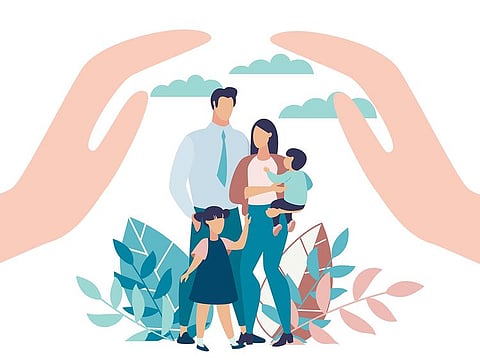In honouring Wadeema’s memory, the UAE commits to protecting all children
We remain resolute in our vision for children to receive education, health care, service

Every child — no matter their nationality, race, religion, or circumstances in which they were born — deserves to live a life of security, safety, and dignity.
This is the fundamental belief underpinning the United Arab Emirates’ policies to protect the rights of children, an obligation that we as a country approach with the utmost seriousness.
Children in the UAE enjoy a myriad of legal and social protections. The UAE has prioritised the rights of children since its founding as a nation over 50 years ago, and there is one Emirati girl in particular who we continue to honour through our action: Wadeema.
In 2012, 8-year-old Wadeema was tragically tortured and killed at the hands of her father and his partner. The entire nation mourned her senseless death, and the horror of the abuse she suffered accelerated the UAE’s development of policies that would protect other children from facing the cruel treatment that Wadeema endured.
As a result, the UAE Government introduced Federal Law No. 3 of 2016 concerning the rights of children, also known as Wadeema’s Law, which stresses that all children must be provided with appropriate living standards, access to health services, education, equal opportunities in essential services, and facilities without discrimination.
While the law was not the first piece of legislation to promote children’s rights, it was a groundbreaking step forward in taking further action to prevent child abuse.
A larger national framework
Wadeema’s Law is one part of a larger national framework to advance human rights. Over the years, the UAE has enacted a series of laws and regulations that enshrine certain fundamental rights that provide for the fair treatment of all citizens and residents, particularly women, children, workers, and persons with special needs, as outlined in the UAE Constitution.
A signatory to some of the world’s most prominent conventions on human rights, including the Universal Declaration of Human Rights, Convention on the Rights of the Child (1989), and Optional Protocol to the Convention on the Rights of the Child on the Sale of Children, the UAE remains determined to champion international best practices in the promotion of human rights while exchanging expertise and experience with its partners.
Protecting society’s most vulnerable is a responsibility that the UAE Government approaches with firm resolve, recognising that children deserve the fullest extent of protection guaranteed by law. The UAE has also launched the National Strategy for Motherhood and Childhood and the National Bullying Prevention Program. And though they are young, children also deserve to have a voice in the public space.
To ensure children are heard and their best interests are taken into consideration, the UAE established the UAE Parliament for the Child, Supreme Council for Motherhood and Childhood, and Sharjah Children Shura Council. The Children’s Parliament in particular aims to promote children’s engagement with government officials in policymaking.
Ensuring children’s protection
At the federal level, the Ministry of Interior established the Higher Committee for Child Protection in 2009 and the Child Protection Centre in 2011. It also inaugurated a hotline to report cases of child assault and mobilise resources to ensure children’s protection. In this vein, the Ministry of Education launched a ‘Child Protection Unit’ initiative in schools to protect children from physical or psychological abuse in educational institutions and at home.
Protecting children from violence and abuse also extends into the digital realm. The UAE is a member of the “WePROTECT” Global Alliance Advisory Board, an initiative that aims to enhance international cooperation to provide a safe environment for children on the internet.
Another component of Wadeema’s Law that deserves additional attention is Article 66, which states that it is strictly prohibited to publish, view, circulate, produce, or be in possession of any visual, audio, video, printed materials, or games that target children and elicit sexual or other behaviours that violate morality or public order. Violators will find themselves subject to imprisonment for a period not less than one year and a fine not less than Dh100,000 and not exceeding Dh400,000.
Children in the UAE — in school, with family, and online — must be able to enjoy happy, secure, and healthy childhoods in order to thrive. Wadeema’s heart wrenching story must not ever be repeated. In all efforts to safeguard the rights of children, the UAE Government is working to prevent another child from experiencing such immense suffering.
As we come together to celebrate Emirati Children’s Day each year on March 15, we approach this day with solemnity, as it coincides with the day that Wadeema’s Law was introduced. In looking to the next 50 years of our country’s development, we remain resolute in our vision for children to receive the education, health care, and social services they deserve. Our efforts to ensure a healthy, safe, and supportive environment for children’s development must build upon the past and recognise that a better future for children everywhere is possible.
Saeed Al Hebsi, Director of the Human Rights Department at the UAE Ministry of Foreign Affairs and International Cooperation
Sign up for the Daily Briefing
Get the latest news and updates straight to your inbox



